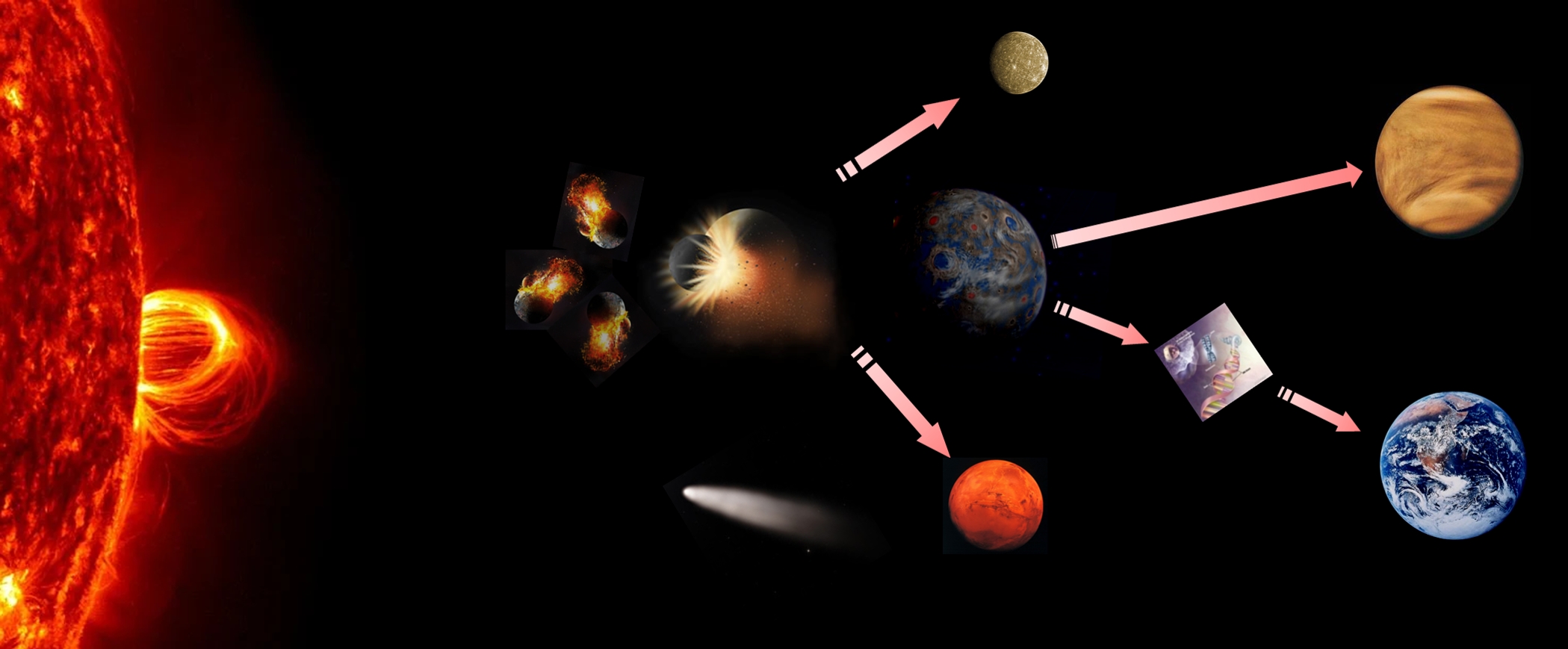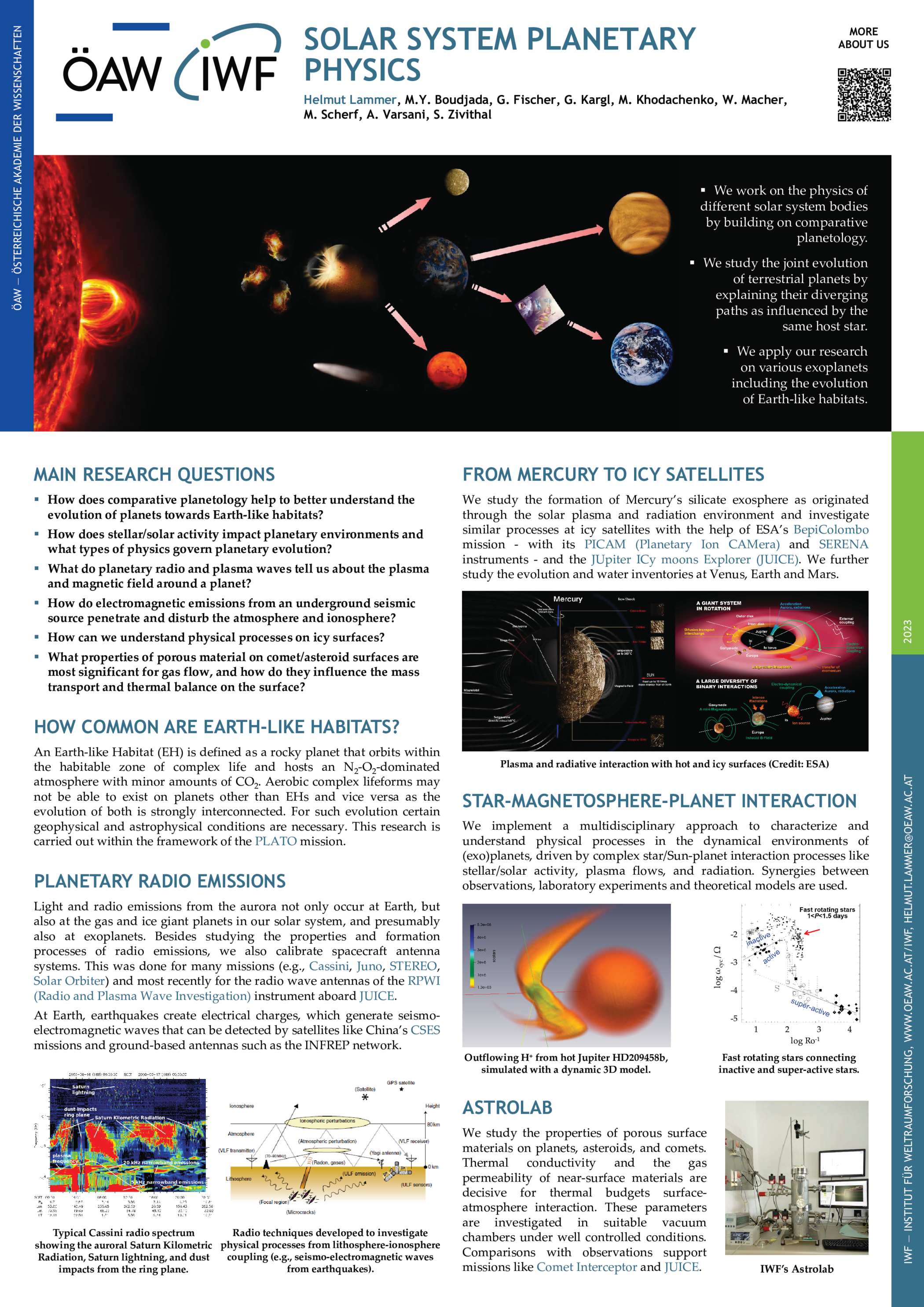Solar System Planetary Physics

The research group "Solar System Planetary Physics" develops and applies theoretical models where the influence of solar/stellar plasma and short wave-length radiation on atmospheric-magnetospheric environments and surfaces is studied. Observational data obtained from space missions and experiments related to near surface physics of airless bodies obtained within the group’s Astrolab laboratory are used as support for validating models.
A focus lies on the understanding of atmospheres/exospheres and their evolution at Mercury, Venus, Earth, and Mars and how the divergent paths of these planets have evolved during the early active phase of the young Sun within one comparative framework. Knowledge derived about the Solar System is then also extended and applied towards comparative exoplanet studies with a focus on Earth-like habitats. The research activities also contain electrodynamical processes in magnetospheres due to planet-star interactions. Moreover, the energy deposition in the upper atmosphere of planets caused by the interaction with stellar radiation and plasma is also studied.
Planetary radio emissions of giant planet system and the effect of earthquake induced seismo-electromagnetic waves in the Earth’s ionosphere are studied via different space and ground-based observatories within which IWF participates.
Further research concentrates on the origin of mineralogical gas and volatile envelopes from Mercury and the Moon to comets, asteroids and icy satellites. Such envelopes are caused due to the direct interaction of radiation and plasma with an airless body’s surface. The research group investigates how the released minerals/volatiles are lost and/or transported in the body’s environment and how the ionized components are modified by magnetic fields. It also studies isotopic signatures from asteroids and comets as tracers for planetary building blocks in the Solar System.
To support the research, the group also maintains the Astrolab, a laboratory for experimenting on gas flows through porous media of various analog materials. These experiments are also supported by theoretical models developed by the group.
The knowledge gained from the study of Solar System bodies also feeds into the other research groups at IWF.
Further information on the various research topics:
